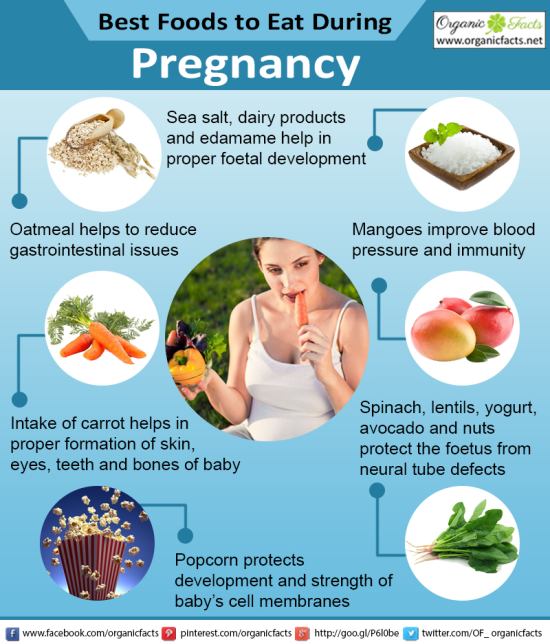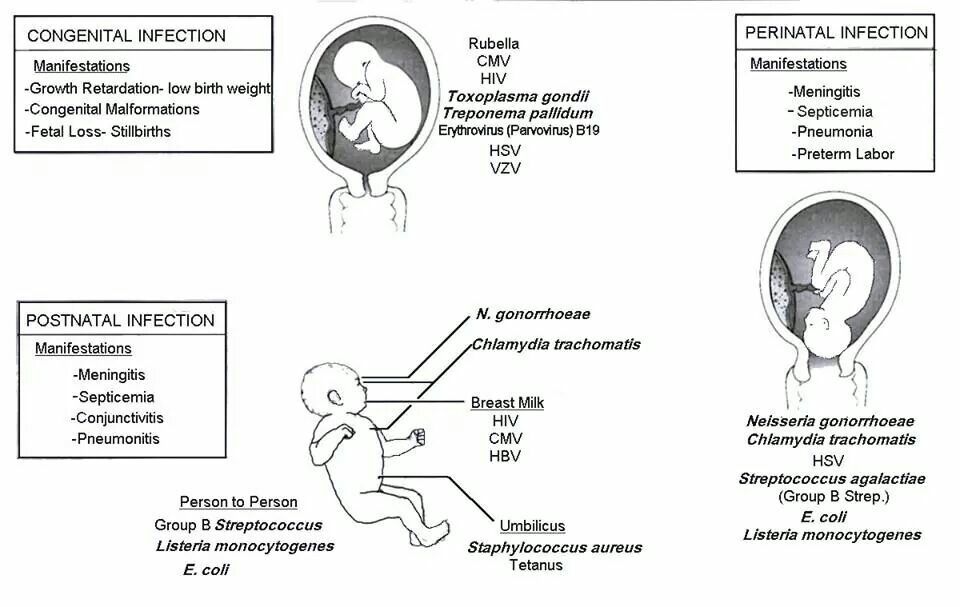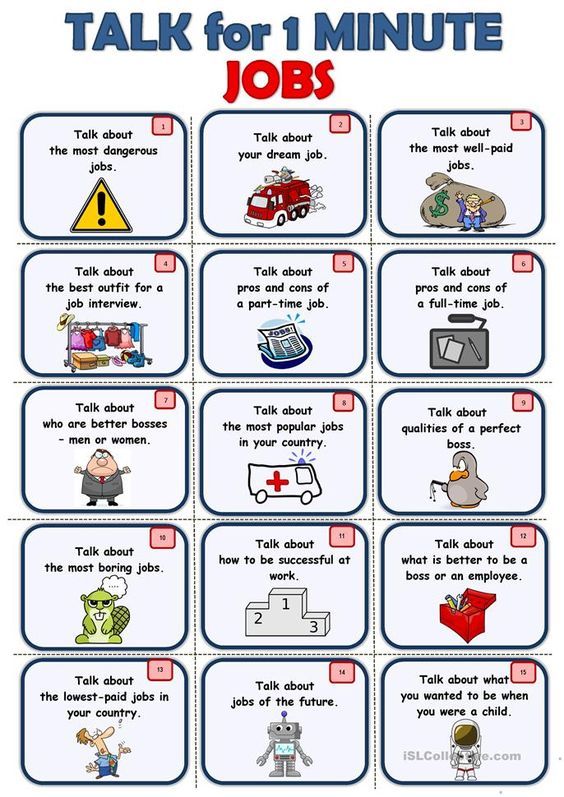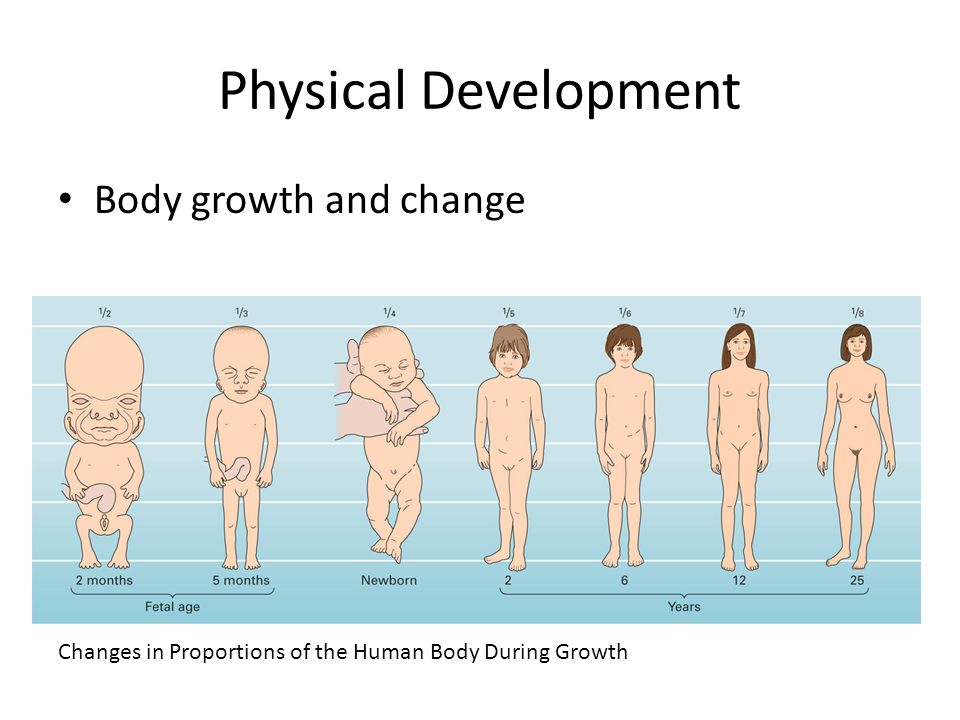Eating vegetables during pregnancy
Have a healthy diet in pregnancy
A healthy diet is an important part of a healthy lifestyle at any time but is especially vital if you're pregnant or planning a pregnancy. Eating healthily during pregnancy will help your baby to develop and grow.
You do not need to go on a special diet, but it's important to eat a variety of different foods every day to get the right balance of nutrients that you and your baby need.
It's best to get vitamins and minerals from the foods you eat, but when you're pregnant you need to take a folic acid supplement as well, to make sure you get everything you need.
Read more about vitamins and supplements in pregnancy.
There are also certain foods that should be avoided in pregnancy.
There's no need to "eat for 2"
You will probably find that you are more hungry than usual, but you do not need to "eat for 2" – even if you are expecting twins or triplets.
Try to have a healthy breakfast every day, because this can help you to avoid snacking on foods that are high in fat and sugar.
Eating healthily often means changing the amounts of different foods you eat, so that your diet is varied, rather than cutting out all your favourites. You can use the Eatwell Guide to get the balance of your diet right. It shows you how much of what you eat should come from each food group to achieve a healthy, balanced diet.
You do not need to achieve this balance with every meal, but try to get the balance right over a week.
Fruit and vegetables in pregnancy
Eat plenty of fruit and vegetables because these provide vitamins and minerals, as well as fibre, which helps digestion and can help prevent constipation.
Eat at least 5 portions of a variety of fruit and vegetables every day – these can include fresh, frozen, canned, dried or juiced.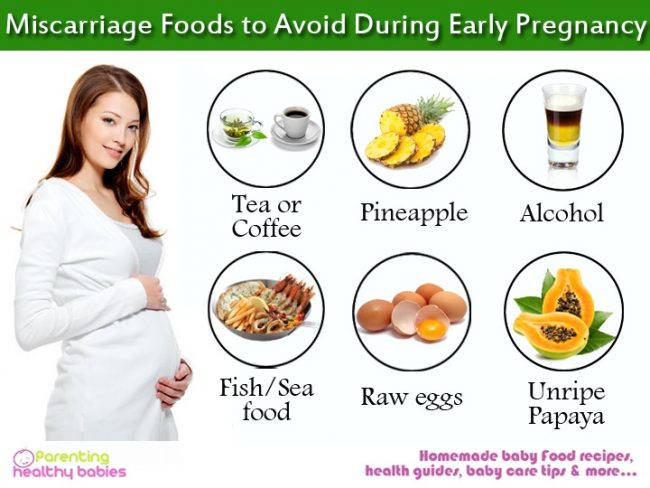 Always wash fresh fruit and vegetables carefully.
Always wash fresh fruit and vegetables carefully.
Find out what counts as a portion of fruit or vegetables.
Starchy foods (carbohydrates) in pregnancy
Starchy foods are an important source of energy, some vitamins and fibre, and help you to feel full without containing too many calories. They include bread, potatoes, breakfast cereals, rice, pasta, noodles, maize, millet, oats, yams and cornmeal. If you are having chips, go for oven chips lower in fat and salt.
These foods should make up just over a 3rd of the food you eat. Instead of refined starchy (white) food, choose wholegrain or higher-fibre options such as wholewheat pasta, brown rice or simply leaving the skins on potatoes.
Protein in pregnancy
Eat some protein-rich foods every day. Sources of protein include:
- beans
- pulses
- fish
- eggs
- meat (but avoid liver)
- poultry
- nuts
Choose lean meat, remove the skin from poultry, and try not to add extra fat or oil when cooking meat.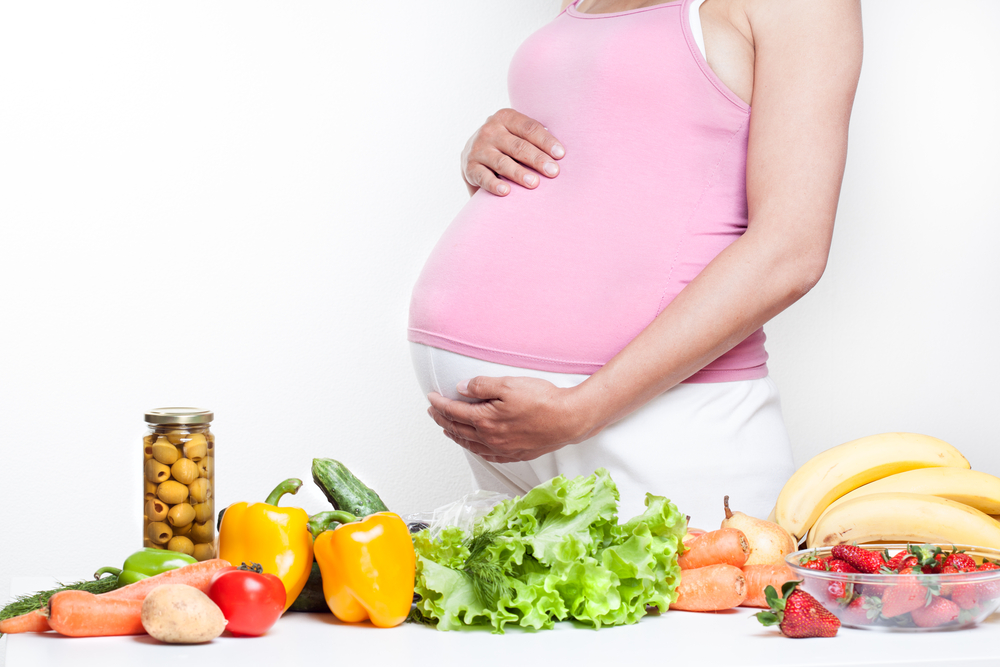 Read more about eating meat in a healthy way.
Read more about eating meat in a healthy way.
Make sure poultry, burgers, sausages and whole cuts of meat such as lamb, beef and pork are cooked very thoroughly until steaming all the way through. Check that there is no pink meat, and that juices have no pink or red in them.
Try to eat 2 portions of fish each week, 1 of which should be oily fish such as salmon, sardines or mackerel. Find out about the health benefits of fish and shellfish. There are some types of fish you should avoid when you're pregnant or planning to get pregnant, including shark, swordfish and marlin.
When you're pregnant, you should avoid having more than 2 portions of oily fish a week, such as salmon, trout, mackerel and herring, because it can contain pollutants (toxins).
You should avoid eating some raw or partially cooked eggs, as there is a risk of salmonella.
Eggs produced under the British Lion Code of Practice are safe for pregnant women to eat raw or partially cooked, as they come from flocks that have been vaccinated against salmonella.
These eggs have a red lion logo stamped on their shell. Pregnant women can eat these raw or partially cooked (for example, soft boiled eggs).
Eggs that have not been produced under the Lion Code are considered less safe, and pregnant women are advised to avoid eating them raw or partially cooked, including in mousse, mayonnaise and soufflé. These eggs should be cooked until the white and the yolk are hard.
Find out more about foods to avoid in pregnancy.
Dairy in pregnancy
Dairy foods such as milk, cheese, fromage frais and yoghurt are important in pregnancy because they contain calcium and other nutrients that you and your baby need.
Choose low-fat varieties wherever possible, such as semi-skimmed, 1 percent fat or skimmed milk, low-fat and lower-sugar yoghurt and reduced-fat hard cheese.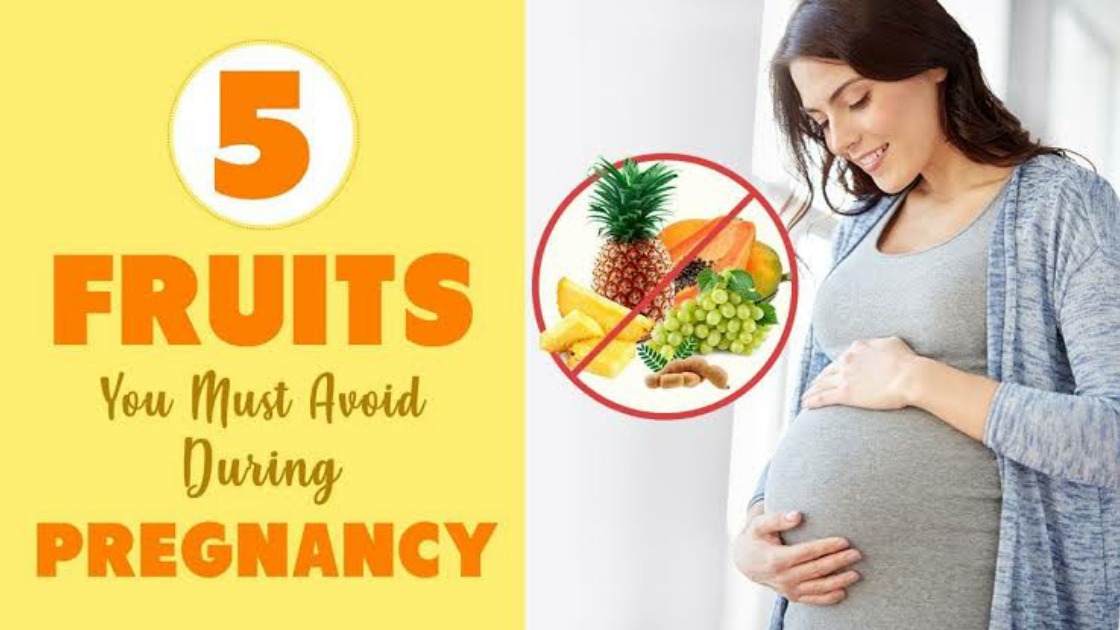
If you prefer dairy alternatives, such as soya drinks and yoghurts, go for unsweetened, calcium-fortified versions.
Find out more about the nutritional benefits of dairy and dairy alternatives.
There are some cheeses you should avoid in pregnancy, including unpasteurised cheeses. To find out which cheeses you should not eat when you're pregnant on our page about foods to avoid in pregnancy.
Foods that are high in fat, sugar or both
Sugary foods and drinks are often high in calories, which can contribute to weight gain. Having sugary foods and drinks can also lead to tooth decay.
Fat is very high in calories, so eating too many fatty foods, or eating them too often, can make you put on weight. Eating too much saturated fat can also increase the amount of cholesterol in your blood, which increases your chance of developing heart disease.
Foods that are high in fat, sugar, or both, include:
- all spreading fats (such as butter)
- oils
- salad dressings
- cream
- chocolate
- crisps
- biscuits
- pastries
- ice cream
- cake
- puddings
- fizzy drinks
If you're having foods and drinks that are high in fat and sugar, have these less often and in small amounts.
Try to cut down on saturated fat, and have small amounts of foods rich in unsaturated fat instead, such as vegetable oils. Find out about saturated and unsaturated fat.
Healthy snacks in pregnancy
If you get hungry between meals, try not to eat snacks that are high in fat and/or sugar, such as sweets, biscuits, crisps or chocolate.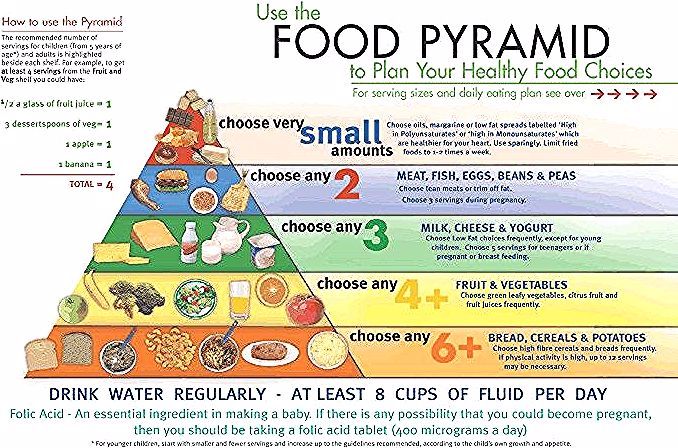 Instead, choose something healthier, such as:
Instead, choose something healthier, such as:
- small sandwiches or pitta bread with grated cheese, lean ham, mashed tuna, salmon, or sardines, with salad
- salad vegetables, such as carrot, celery or cucumber
- low-fat, lower-sugar fruit yoghurt, plain yoghurt or fromage frais with fruit
- hummus with wholemeal pitta bread or vegetable sticks
- ready-to-eat apricots, figs or prunes
- vegetable and bean soups
- a small bowl of unsweetened breakfast cereal, or porridge, with milk
- milky drinks
- fresh fruit
- baked beans on toast or a small baked potato
- a small slice of malt loaf, a fruited tea cake or a slice of toasted fruit bread
When choosing snacks, you can use food labels to help you.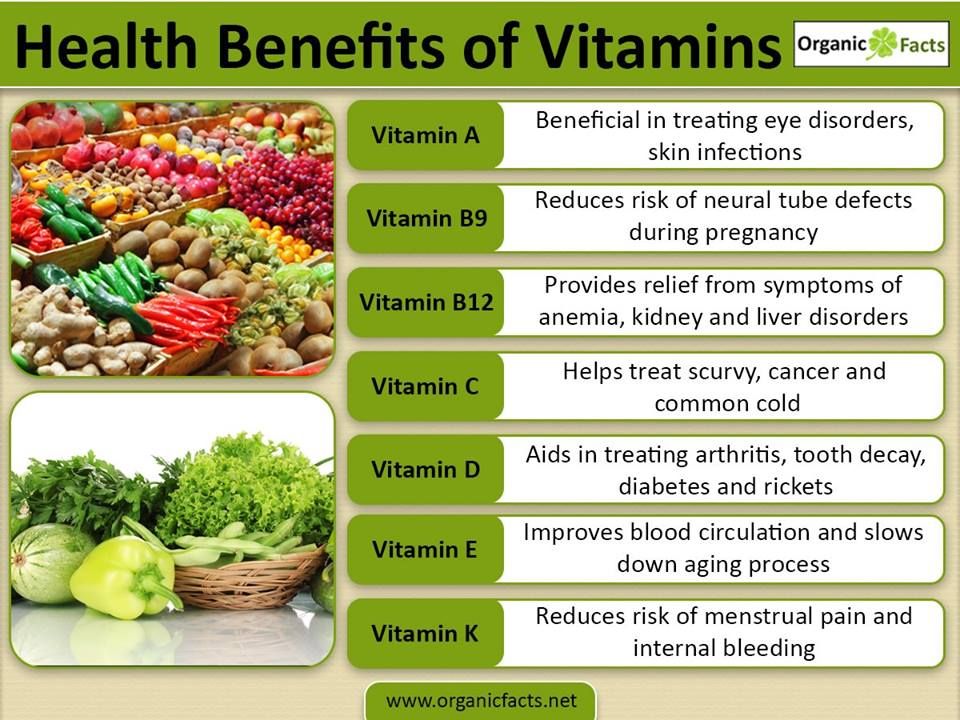 Find out more about food labelling, including how the "green, amber, red" code can help you make healthier choices quickly.
Find out more about food labelling, including how the "green, amber, red" code can help you make healthier choices quickly.
Preparing food safely
- Wash fruit, vegetables and salads to remove all traces of soil, which may contain toxoplasma (a parasite that can cause toxoplasmosis) which can harm your unborn baby.
- Wash all surfaces and utensils, and your hands, after preparing raw foods (poultry, meat, eggs, fish, shellfish and raw vegetables) to help you avoid food poisoning.
- Make sure that raw foods are stored separately from ready-to-eat foods, otherwise there's a risk of contamination.
- Use a separate knife and chopping board for raw meats.
- Heat ready meals until they're steaming hot all the way through – this is especially important for meals containing poultry.
You also need to make sure that some foods, such as eggs, poultry, burgers, sausages and whole cuts of meat like lamb, beef and pork, are cooked very thoroughly until steaming all the way through.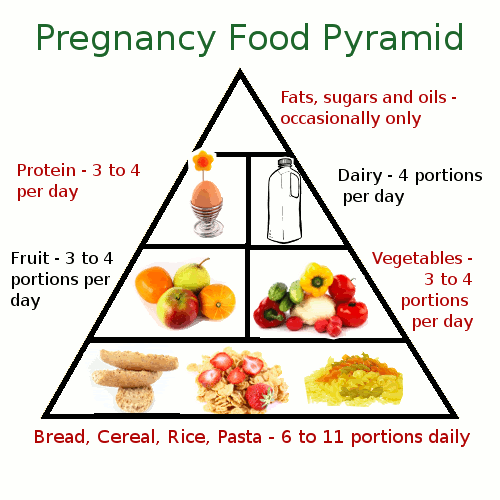
For tips, read foods to avoid in pregnancy.
The Healthy Start scheme
You may be able to get help to buy food and milk through the Healthy Start scheme if you're pregnant or have a child under 4 years old and receive certain benefits, or you’re pregnant and under 18.
If you qualify, you’ll be sent a Healthy Start card which you can use to buy certain types of milk, infant formula, fruit and vegetables.
For more information, or to apply for a card, visit the Healthy Start scheme website.
Get Start4Life pregnancy and baby emails
Sign up for Start4Life's weekly emails for expert advice, videos and tips on pregnancy, birth and beyond.
Community content from HealthUnlockedBest & Worst Vegetables to Eat During Pregnancy
Which vegetables you should enjoy while pregnant & which to avoid
- Home
- OB/GYN Knowledge Center
- Benefits of Eating Vegetables for Expectant Mothers During Pregnancy
The list of food restrictions that pregnant women must contend with is endless: say goodbye to deli meat, seafood and even caffeine for a while. Your baby's development and growth can see an impact from what you consume, so an abundance of caution never hurts.
Eating the right vegetables during pregnancy can provide essential vitamins and minerals that help your baby in the womb and after birth. However, some vegetables might be risky during pregnancy.
Learn more about the best vegetables during pregnancy, as well as which vegetables are good to avoid.
Benefits of vegetables during pregnancy
The best vegetables during pregnancy offer plenty of fiber and other nutrients. Eating the right foods, in the correct amounts, at the right time, makes all the difference. A healthy diet will make it easier to avoid nutritional deficiencies and gestational diabetes.
Eating the right foods, in the correct amounts, at the right time, makes all the difference. A healthy diet will make it easier to avoid nutritional deficiencies and gestational diabetes.
Benefits of the right diet include:
- Healthy maternal weight gain
- Blood pressure within appropriate levels
- Reduced risk of developing anemia
- Healthy birth weight for the baby
Some of the vital nutrients include:
- Beta carotene, which benefits the baby's immune system, eyesight and tissue development
- Vitamin C for healthy tissue development, as well as healthy teeth and bones
- Folic acid, for a healthy weight and preventing neural tube defects
- Potassium, for better blood pressure regulation
Eating vegetables is one of the best ways to keep your baby healthy during and beyond your pregnancy.
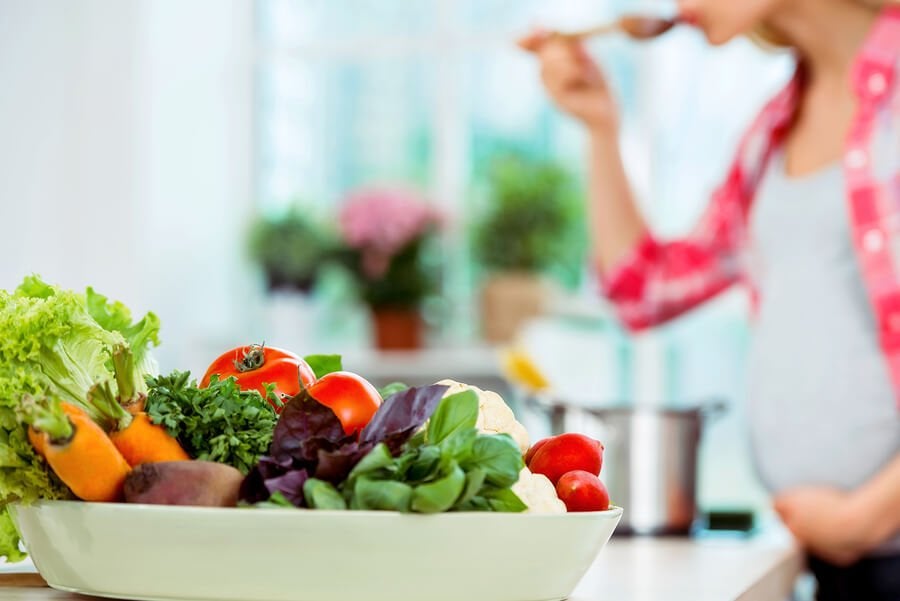
Best vegetables for pregnant mothers
Some of the best vegetables to eat during pregnancy include:
✔ Summer and winter squash — excellent sources of protein, fiber, folate and Vitamins A, C and K
✔ Asparagus — contains Vitamins A, C, E and K, as well as fiber and folate
✔ Tomatoes — a source of Vitamin C and K, and biotin
✔ Beets — a natural source of fiber that is also good for immune system support
✔ Yams or sweet potatoes — great sources of Vitamins A, B, and C
✔ Bell peppers — an excellent fiber source
✔ Parsley — a natural source of Vitamin E, protein and riboflavin
✔ Broccoli — a good source for fiber, as well as folate and Vitamins C and K
✔ Leafy greens like chard, spinach, mustard or collard greens, lettuce or kale — an excellent source of fiber, folate and carotenoids
✔ Escarole or endive
✔ Green peas — high in fiber and Vitamins C and K
When you see your doctor, find out about other vegetables that may be beneficial for you and the coming baby.
Some vegetables to avoid while pregnant
There are also a few types of vegetables that pregnant women should avoid. All of these items carry the risk of exposure to bacteria that can harm your baby:
✘ Raw sprouts, including mung bean, clover and alfalfa
✘ Any unwashed produce
✘ Raw radishes
✘ Prepackaged salad mixes
✘ Salad bar items
Sprouts and radishes are safe to consume if cooked. Also, swap out canned vegetables for fresh produce, as fresh vegetables and fruits are more nutritionally complete.
How many vegetable servings are appropriate?
Feeling a little more hungry than usual is reasonable because you are eating for two. Smaller, more frequent meals are often recommended. You might be more likely to have digestive problems, and smaller meals reduce the likelihood of these issues.
Most women do well with 2.3 to 5 cups of either raw or cooked vegetables daily. Consuming vegetables is desirable instead of using supplements alone.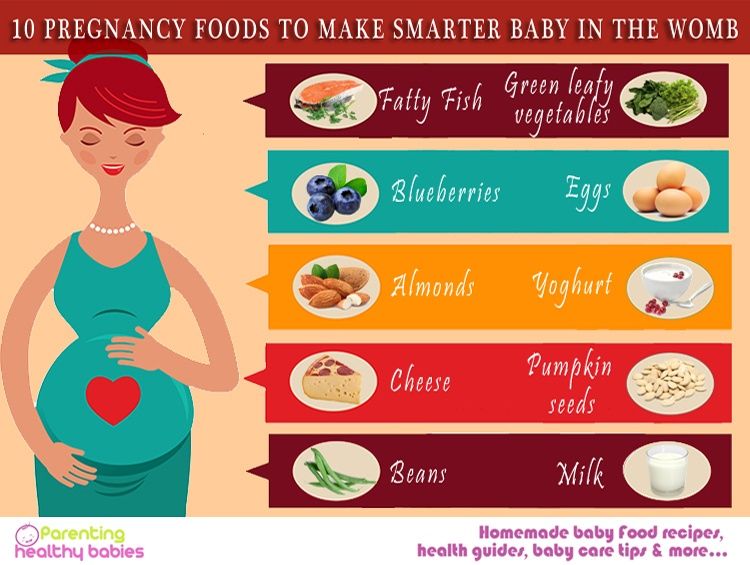 Getting the amount of sleep that you need, as well as exercising, will also help.
Getting the amount of sleep that you need, as well as exercising, will also help.
How to get more veggies into your diet
There are some exciting ways that you might want to consider for preparing vegetables. Grilling or roasting vegetables with spices like oregano, coriander, thyme or basil can make them more flavorful.
Consider cutting up or shredding properly cleaned vegetables, and eating them with a dip. If you're trying to get more of a vegetable that you're not fond of consuming, a dip might be what you need to consume the offending veggie more willingly.
Try mixing up different vegetables and eating them in a sauce. You'll be able to focus more on the sauce and less on which vegetables you don't care for.
It's vitally important to wash vegetables before use. Remaining soil after harvesting or pesticide residue can be harmful to both you and the child. Even if the vegetables you eat are organic, washing before consumption is a good habit.
Always make sure you are in touch with your pregnancy care doctor about your diet, especially if there is anything you are unsure about. Erring on the side of caution is always a safe strategy.
Erring on the side of caution is always a safe strategy.
If you have any questions, reach out to our team at All About Women today to schedule an appointment. We’ll be happy to address all your concerns.
Nutrition of a pregnant woman
So, your plans and decisions to give birth to a child have come true - you are pregnant! But this news causes you a double feeling: - on the one hand, a feeling of joy, and on the other hand, a feeling of certain fear and even fear of unknown trials for your life and the fate of the unborn baby. What will he be like? - healthy, beautiful, happy?...
And this largely depends on the woman herself, on what lifestyle she will lead during pregnancy and, most importantly, how she will eat. nine0003
Nutrition of a woman in different periods of pregnancy
The main thing in the menu of a future mother is variety. She should consume foods from all food groups: meat, fish, vegetables and fruits, dairy products, bread and cereals.
A woman's nutrition during pregnancy can be roughly divided into three periods (trimesters).
If before pregnancy a woman ate normally, felt comfortable, did not experience allergies to any products, then it is not worth changing her diet at an early stage of the first trimester of pregnancy. nine0003
During this period, all organs and systems in the child's body are formed, tissues are formed. The body needs complete proteins and vitamins: lean meat (rabbit, chicken, turkey), fish and seafood, dairy products. Be sure to eat rice, fresh or frozen vegetables, seasonal fruits. In the first trimester, many expectant mothers are still working. No matter how difficult it is to control your diet in the workplace, you need to do it - find time for a full breakfast and lunch. nine0003
In the first trimester of pregnancy, there is an active restructuring of the body and adaptation to a new state. During this period, it is recommended to switch to a low-calorie diet, which includes more fruits, juices, decoctions of dried fruits, including rose hips.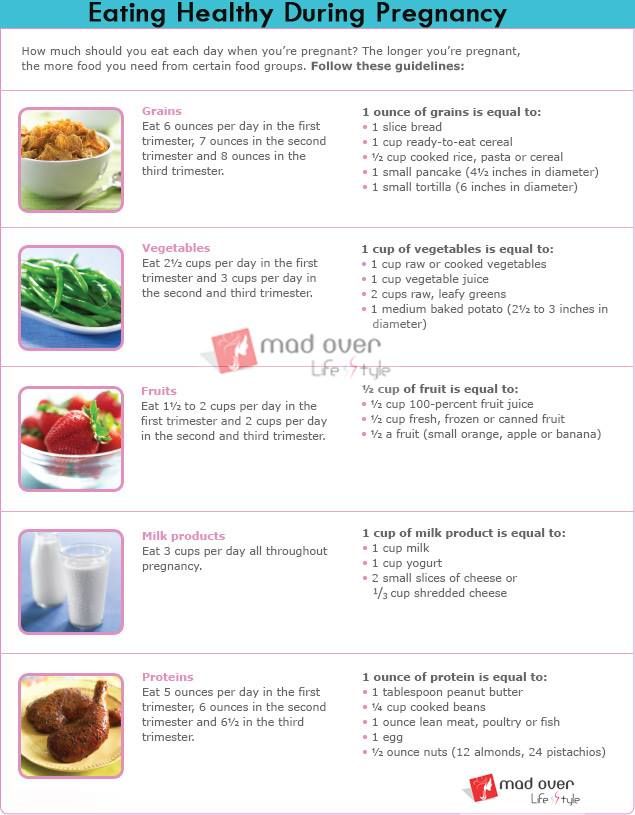 At the very beginning of pregnancy, especially if toxicosis torments, more frequent, but less plentiful meals are recommended.
At the very beginning of pregnancy, especially if toxicosis torments, more frequent, but less plentiful meals are recommended.
Always keep a hematogen, a bag of nuts or dried fruit in your pocket to have a snack on the street. If your condition does not allow you to eat regular food, you should pay attention to baby food. Baby products literally save expectant mothers suffering from severe toxicosis. These are boxed cereals, children's curds, cookies and fruit purees. nine0003
In the first trimester, special attention must be paid to the quality of products. Gradually abandon sauces, semi-finished products and canned food containing harmful chemical additives. Do not forget that the placenta freely accumulates and passes chemistry. The importance of products containing folic acid is great, without it intensive metabolism is impossible, its deficiency can cause developmental abnormalities. Folic acid is found in greens, nuts, white cabbage and broccoli, beets, legumes, and eggs.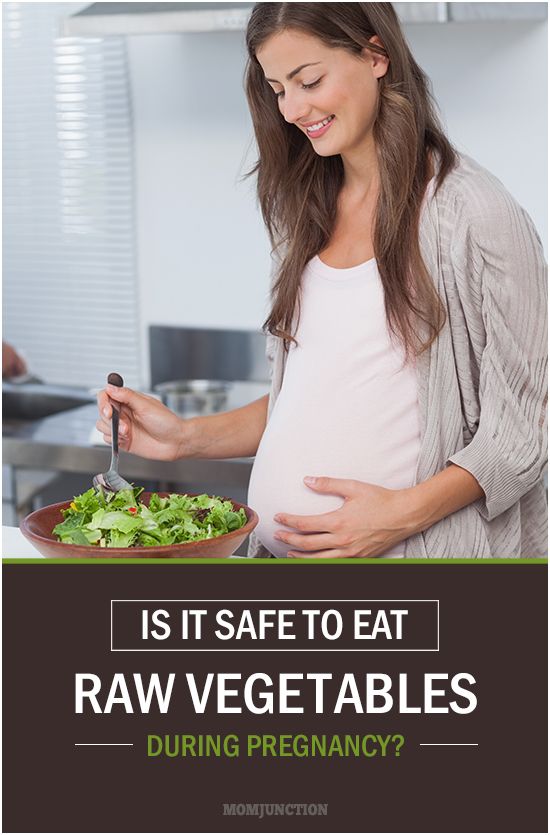 nine0003
nine0003
According to nutritionists, the diet of pregnant women should be 300 kcal / day higher than that of non-pregnant women, but in the first trimester there is no need to increase the energy value of the diet at all; in the second trimester, an additional 340 kcal / day is required; in the third trimester - 452 kcal / day. Pregnant women generally get enough calories, and more than 80% of women achieve and even exceed the required weight gain. These extra calories benefit the fetus. An underweight woman should gain 16–20 kg during her entire pregnancy, an overweight woman about 7 kg, and a normal body weight of 11–12 kg. nine0003
In the second trimester there are active jumps in the height and weight of the baby and uterus, so the caloric content of the diet needs to be increased. It is desirable to eat more and better. At this time, the need for trace elements increases: iron, magnesium, zinc, selenium, calcium, potassium. The child creates his own "reserve" of trace elements using the mother's resource, which means that the mother should have enough of them for two.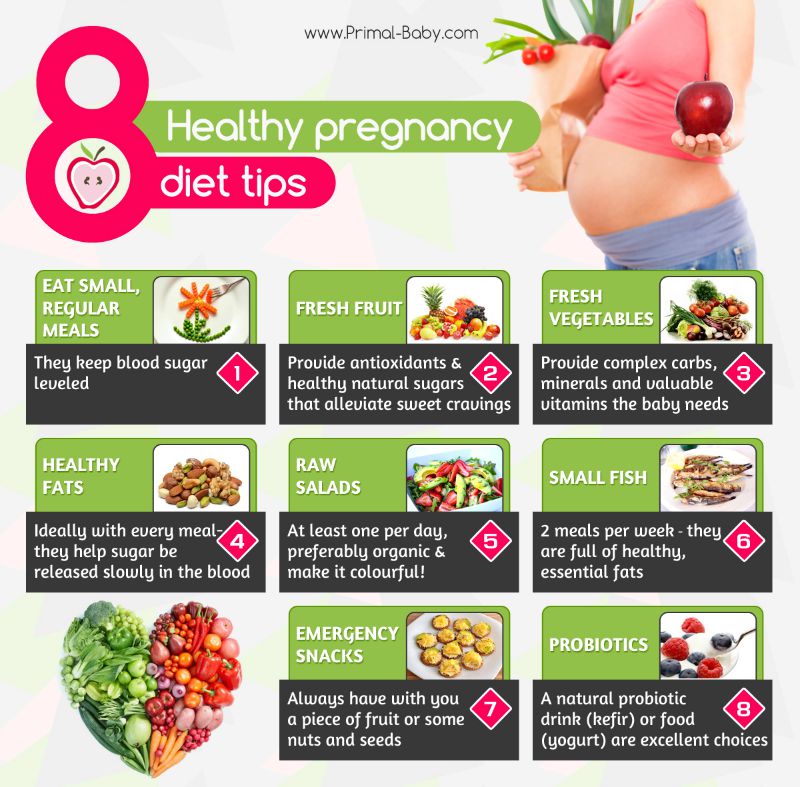
Very often in pregnant women in the second trimester hemoglobin drops, this is a normal physiological phenomenon, if it is not threatening to health. You can increase hemoglobin by eating red meat, chicken, fish, dried fruits, pomegranates, green vegetables and fresh herbs, buckwheat, citrus fruits (oranges, grapefruits, pomelo, lemons), rosehip and berry infusions. nine0003
In the second trimester, a pregnant woman should limit the intake of smoked and fried foods, as well as salt in her diet. In no case should you limit the liquid. Pure water is the best drink for a pregnant woman, and water should be consumed up to 2-2.5 liters per day. Water is a natural drink for the body, it does not cause complications and has no contraindications. Edema is caused not by water, but by salt, which we not only add in its pure form, but also consume with canned food, mayonnaise, cheese, and sausage. The absence of salt is not harmful, it is naturally found in many products: vegetables, bread, so the diet will not remain completely without it.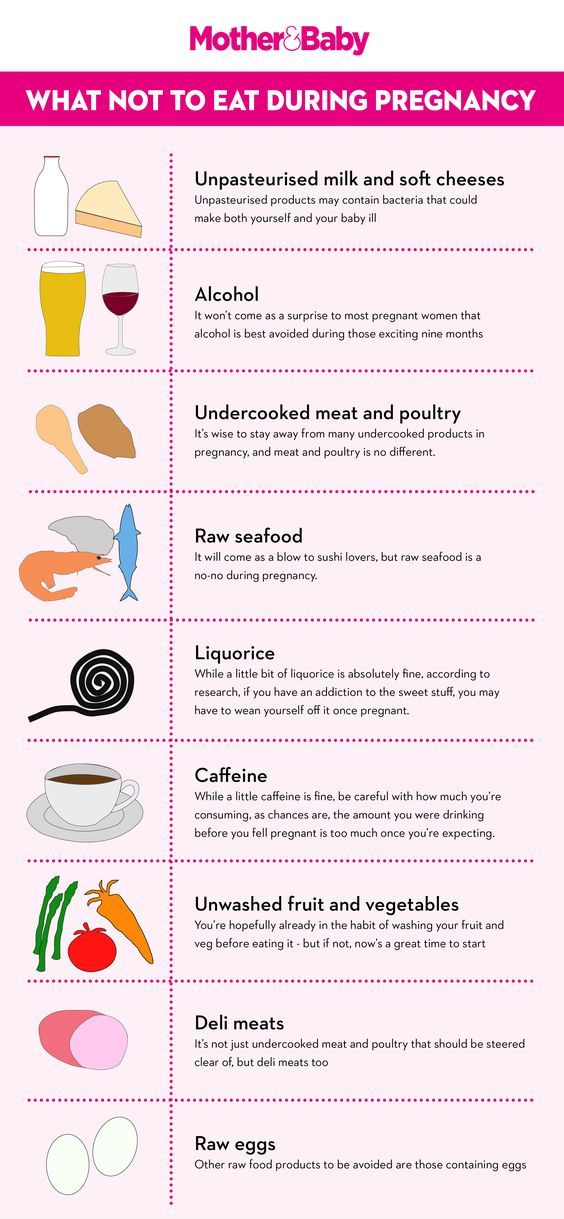 Excess salt disrupts metabolism. nine0003
Excess salt disrupts metabolism. nine0003
During this period, you can increase the calorie content of food. Childbirth must be approached physically strong. It is better to eat meat and fish in the morning, for breakfast and lunch, and for dinner, prepare dairy and vegetable dishes: cheesecakes, stewed vegetables, cottage cheese and vegetable casseroles. It is necessary to minimize the intake of canned food, smoked meats, pickles and marinades, hot spices and fatty foods. Frequent walks in the air, physical activity are recommended.
In the third trimester, it is necessary to reduce the calorie content of foods at the expense of confectionery and flour products, eat less fatty meat, as well as cheese and sour cream. nine0003
By the end of this period, many experts advise pregnant women to give up meat altogether in order to increase tissue elasticity and prevent ruptures.
During the entire period of pregnancy, special attention should be paid to the combination of products.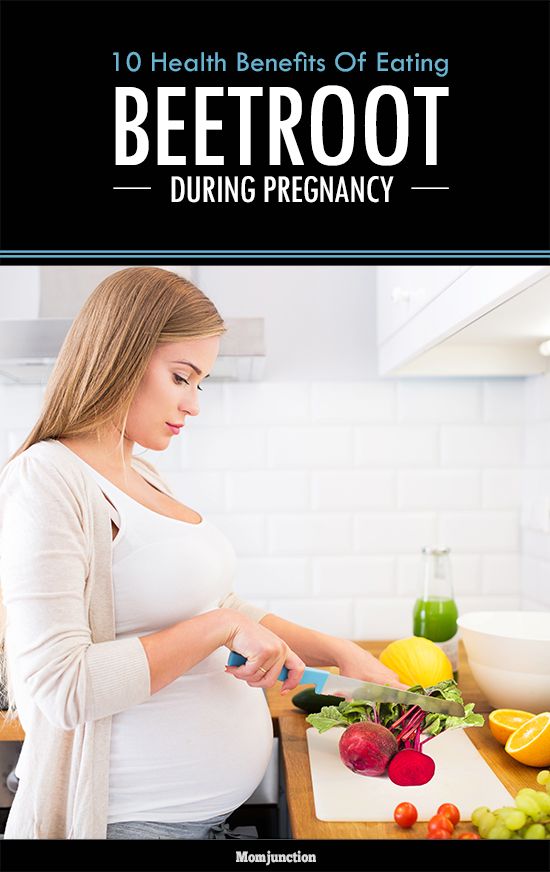 If you combine foods wisely, you can ensure more efficient absorption of food. If the food is digested poorly, then this can lead to rotting and fermentation of products and the formation of substances harmful to the body of the mother and child. In addition, the fermentation process is accompanied by gas formation, which can lead to flatulence (bloating) and discomfort. This is especially harmful in the last stages of pregnancy. nine0003
If you combine foods wisely, you can ensure more efficient absorption of food. If the food is digested poorly, then this can lead to rotting and fermentation of products and the formation of substances harmful to the body of the mother and child. In addition, the fermentation process is accompanied by gas formation, which can lead to flatulence (bloating) and discomfort. This is especially harmful in the last stages of pregnancy. nine0003
Try not to take the first, second and third course at the same time; this overflows the stomach and presses on the fetus, the food is poorly digested and poorly absorbed. Eat little and often. It is not recommended to eat immediately before starting work, a long walk, before charging and immediately after it; it is advisable to rest for 10 minutes before eating.
Eat only when you are hungry, try not to snack on the go. Follow the diet, eat at about the same time. nine0003
Proper preparation of food will help to maximize the useful substances contained in the products.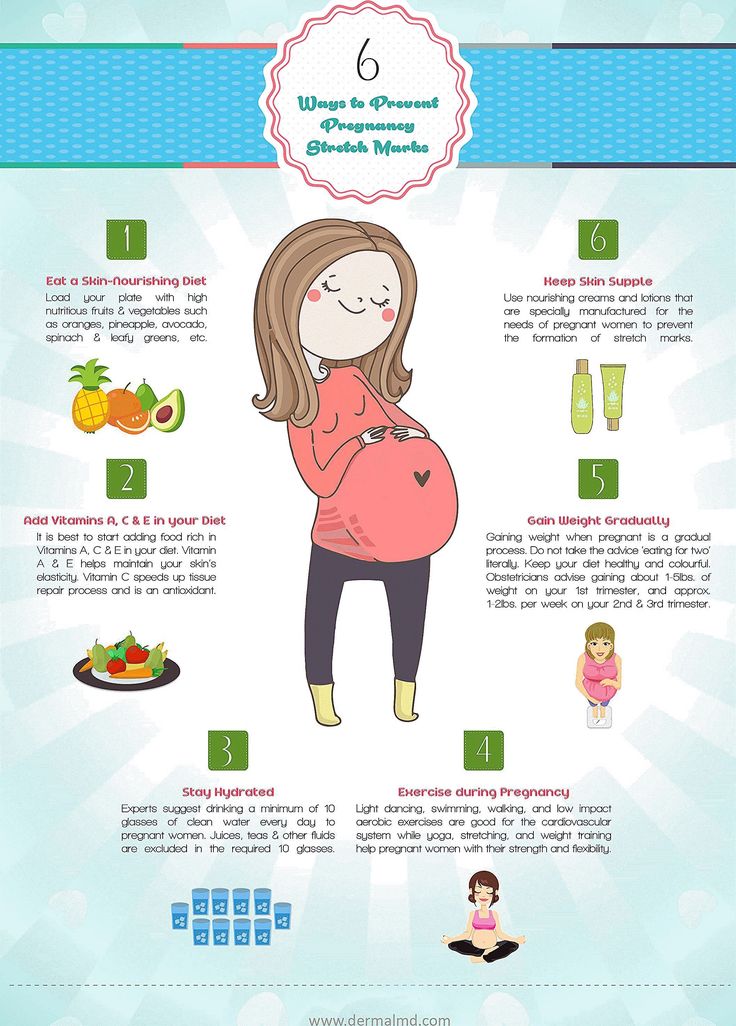 Do not overcook food, try not to reheat the same dish several times, it is better to set aside only the portion that will be used. Cook in the most gentle way: baking, steaming, stewing. Avoid frying, boiling in large amounts of water, with this method of processing products, many useful substances are lost. If possible, do not cook for several days at once. Do not use aluminum cookware when cooking. Remember that for a pregnant woman, it is not calories that are important, but the quality of food, its naturalness, primarily a “living cell” (whole cereals, raw vegetables and fruits, fresh meat and dairy products). nine0003
Do not overcook food, try not to reheat the same dish several times, it is better to set aside only the portion that will be used. Cook in the most gentle way: baking, steaming, stewing. Avoid frying, boiling in large amounts of water, with this method of processing products, many useful substances are lost. If possible, do not cook for several days at once. Do not use aluminum cookware when cooking. Remember that for a pregnant woman, it is not calories that are important, but the quality of food, its naturalness, primarily a “living cell” (whole cereals, raw vegetables and fruits, fresh meat and dairy products). nine0003
What can harm the pregnant woman and the fetus
Smoking and alcohol – quit smoking from the first days of pregnancy, if you have smoked before, avoid "passive" smoking, and do not consume alcoholic beverages in any doses.
Lack of vitamins and microelements in the body - their absence or deficiency can lead to irreparable consequences. So, for example, iodine deficiency can lead to mental retardation of a child, folic acid deficiency - to severe fetal deformities, calcium deficiency - to a violation of the formation of the child's skeleton, iron deficiency - to anemia and a delay in the physical and neuropsychic development of the child.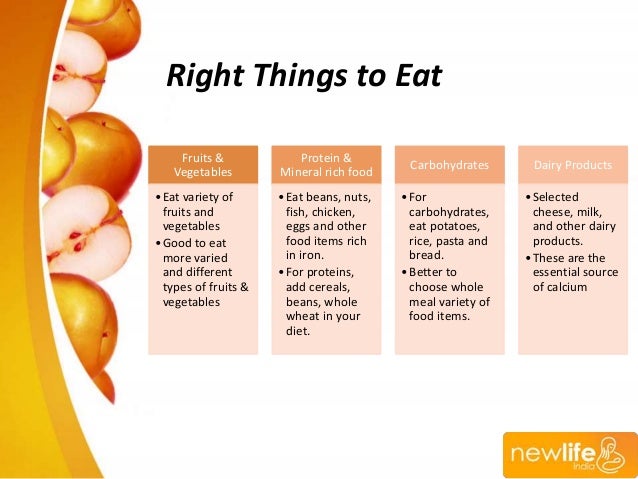 It is necessary to consult a doctor, perhaps he will recommend switching to iodized salt, as well as supplementing your diet with a vitamin-mineral complex and folic acid. nine0003
It is necessary to consult a doctor, perhaps he will recommend switching to iodized salt, as well as supplementing your diet with a vitamin-mineral complex and folic acid. nine0003
Excess weight is the risk of having a large child, which means the risk of complications during childbirth and the child's tendency to become obese at an older age.
The use of food additives (sauces, seasonings such as vegeta, bouillon cubes), exotic fruits, semi-finished products, carbonated drinks - the risk of allergies and anomalies in a child, unfortunately, increases.
Recommended for pregnant women:
- Do not eat hot dogs and other snacks containing meat that has not been heated on fire or boiled in boiling water. nine0058
- Avoid soft cheeses. Hard cheeses are safe.
- Do not eat raw frozen pies and meat pastes, seafood. Canned analogues are safe.
- Do not consume raw vegetables, unpasteurized juices, liver, meat, poultry and eggs that have not been sufficiently cooked.
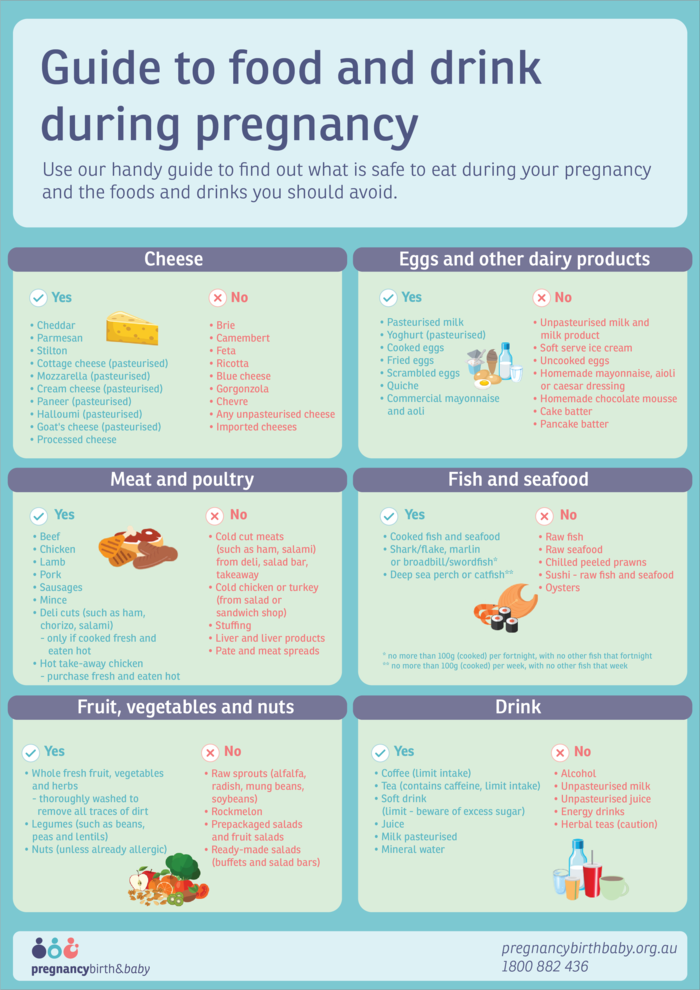 These products may contain Salmonella taxins.
These products may contain Salmonella taxins. - Limit sweets.
- In no case do not resort to starvation and various diets. nine0058
- Regularly monitor blood pressure and do not miss visits to the gynecologist.
Remember!
Your child's development and health depend on your diet and lifestyle during pregnancy!
TOP 5 healthy foods for pregnant women
April 5, 2019
Pregnancy is an important and responsible period in the life of every woman, because during these months the control of not only her health, but the successful development of the baby depends on her. nine0003
For excellent well-being, every day you need to remember about the peculiarities of nutrition. Here are five healthy foods to add to your diet for expectant mothers.
What to add to the diet?
The products in the selection are united by a high content of protein - a "building material" for cells, which is useful for the development of the fetus.
Eggs
This product is highly digestible and has unique properties. The composition of eggs includes essential amino acids for humans, it is not without reason that the World Health Organization has given the title of standard to egg white. The product is rich in many vitamins: A, B4, B12, D, E.
Salmon
This fish is useful throughout the entire period of pregnancy, even at the earliest stages. In addition to easily digestible protein, it contains a high content of phosphorus, which is involved in the formation of bone tissue in the fetus. Salmon contains omega-3 fatty acids that are good for heart and vascular health. Also contains: B vitamins, calcium, iodine, potassium and vitamin D.
Beans
Beans, peas and lentils are very satisfying foods.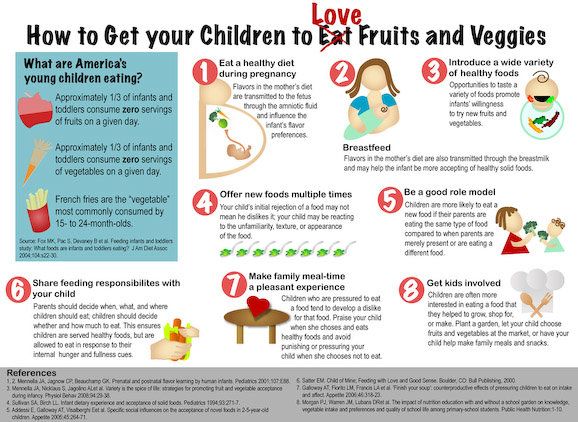 Their advantage lies in the large amount of fiber necessary for the normal functioning of the digestive system. It also contains many B vitamins, including folic acid, which is directly involved in the formation of the brain and spinal cord.
Their advantage lies in the large amount of fiber necessary for the normal functioning of the digestive system. It also contains many B vitamins, including folic acid, which is directly involved in the formation of the brain and spinal cord.
Walnuts
Regular consumption of walnuts will charge the body with vitamins and minerals. Walnut kernels contain vegetable protein rich in amino acids, as well as B vitamins and vitamin E. It is believed that walnuts have an antispasmodic effect, which can help a pregnant woman with a headache if she does not want to take synthetic drugs. There is also an immunostimulating and restorative effect of nuts on the body. nine0003
Fruits and vegetables
Vegetables and fruits contain a lot of soluble fiber, which regulates bowel movements and prevents constipation during pregnancy. They also contain many vitamins that are useful for the immunity of the expectant mother.
Pay attention to food processing!
It should be remembered that for the nutrition of pregnant women, all products must be fresh and well-processed.